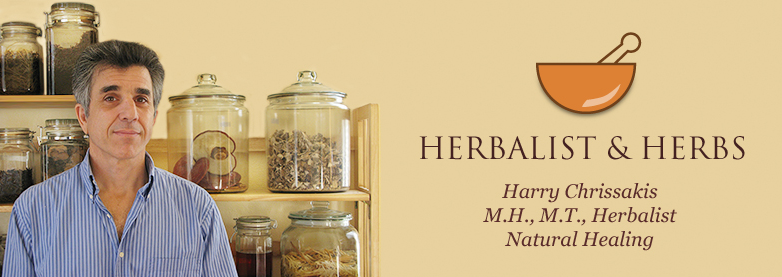PROTECTING AND NOURISHING THE BRAIN
By Harry Chrissakis Herbalist, M.H., Natural Healing
When we think of the vascular system, the conditioned tendency is to think of the heart. However that may be, there exists within us a three pound organ that consumes 20% of the body’s oxygen and 20% of its glucose. This brain of ours runs hot and anything moving that fast physiologically is subject to oxidative stress.
In the anabolic (building up) and catabolic (breaking down) processes of the body, free radicals are produced as part of the reaction. Free radicals are unstable molecular structures that are missing an electron in their outer ring. They stabilize themselves by pulling electrons from the closest most vulnerable tissue and in so doing, damage it by the process of oxidation.
If there are enough systemic antioxidants available, they will quell (by donating an electron) the free radicals before they can do damage.
Let’s watch a short introductory video:
Two of the basic difficulties with the brain is that it does not produce enough antioxidants of its own and has no lymph system. Its vascular system and surrounding tissues are subject to oxidative damage. Added to this is the fact that the brain is 60% phospholipids (fat bound to phosphorus) and oxidized fats are damaging to adjacent fat tissues. Oxidative damage produces a chain reaction in the brain’s fat tissue that can persist for decades (if left unchecked) in a slow and insidious manner.
Once a person begins to manifest neurological damage ( in the form of memory loss), there is about a 10 year window to help mitigate and or turn this around with the use of natural medicine.
Half of the fat content of the brain is composed of the Omega 3 DHA (found in fish oils). We are woefully deficient in Omega 3s (epidemically so). In terms of brain development, the last trimester of pregnancy and the first 2 years of life are crucial. Expectant and new mothers need fish oil or even better, the DHA portion alone. Fish oil and fresh ground flax seed offer supplemental oils (Omega 3’s) that benefit a wide range of things in our body.
The brains blood barrier is highly selective as to what it lets in. Taking antioxidants that can cross the blood brain barrier is a very good strategy to reduce oxidative stress on the brain. Ginkgo, CoQ10 and Alpha Lipoic acid are three excellent choices.
I am focusing on antioxidants because many of the neurodegenerative diseases we see in high numbers today—Alzheimer’s, dementia and cognitive dysfunction all have a large degree of oxidative damage driving and accelerating the disease.
It often takes many years of cumulative oxidative stress to reach the point of a full blown disorder. One leg of a preventative approach is the use of multiple antioxidants.
Maintaining adequate blood flow to the brain is of course crucial. The carotid artery is the main source of blood supply to the brain. It is subject to hardening (atherosclerosis) and subsequent blockage (stroke).
Stroke is the third leading cause of death in the U.S.A. and for those who survive it, stroke is the leading cause of disability in America.
Pomegranate extract may be the only food/herb supplement that not only stops atherosclerosis but actually reverses it. Pomegranate is good medicine.
Increasing blood supply to the brain is both a preventative and treatment methodology. Vinpocetine and Huperzine A increase blood flow inside the brain. Vinpocetine is an extract of the periwinkle plant. Huperzine A is an extract of Chinese Club Moss and has a specific application to Parkinson’s disease.
The main neurotransmitter in the brain is acetylcholine. In progressively degenerative neurological processes (brain diseases), acetylcholine is insufficiently produced and prematurely broken down, the result being impaired memory/loss and reduced learning capability.
A special form of Choline (Choline CDP) comes as a supplement. Choline CDP enhances the production of acetylcholine and reduces its premature degradation.
In the realm of herbs, all adaptogenic herbs help the brain.
Herbs in this class are ginseng, reishi mushroom, rhodiola and macca. Adaptogenic herbs have a general toning, strengthening and balancing effect on both the central nervous system and the central hormonal axis, producing myriad positive effects.
Two herbs from this category that have a pronounced effect on brain function are Gotu Kola and Aswaganda. Both have a long history of use in Ayuvedic medicine in the prevention and treatment of neurological disorders.
The list of supplements, herbs and foods to nourish and protect the brain is relatively extensive. Everything I have mentioned in the article has a large amount of research data available.
Harry Chrissakis Herbalist, M.H., Natural Healing.
